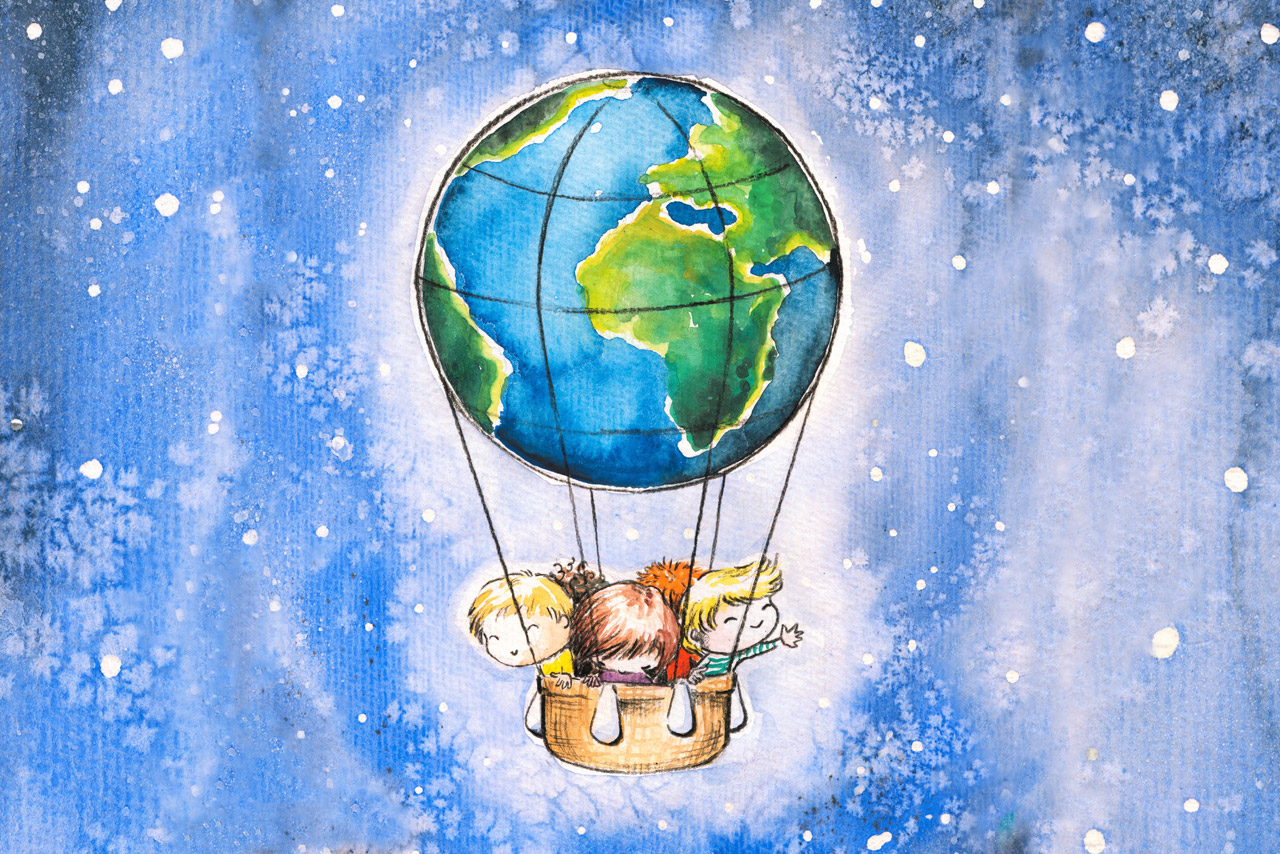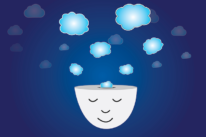
“Death is not the greatest loss in life. The greatest loss is what dies inside us while we live.” ~Norman Cousins
Recently, my grandfather passed away. His departure was difficult for me but it has also left me with something I’ll keep for the rest of my life—an unlikely lesson about life and gratitude.
I hadn’t seen my grandfather often before he died because I’ve been living abroad for the last couple of years. But I was still fond of him and I warmly remembered the days we had spent together when I was young. So his passing was a shock and a tragedy for me. I felt the grief of losing someone close for the first time.
Yet, amid all the pain, some other feeling started to come up: a sense of gratitude. I began to feel grateful that I got the chance to say goodbye to him in person. I felt grateful for having known him and having shared so many good moments with him. And I felt grateful that he was able to live his life and even die the way he wanted.
At first I couldn’t figure out what to make of this weird mix of feelings. I did feel sadness and grief, no doubt. But how could I also experience gratitude? How was I supposed to react? Was it okay for me to feel gratitude or should I only feel sadness?
It took me a little while to give myself permission to just feel the way I felt. And then I realized that I could take this as a parting gift from him. I began to experience, firsthand, that even in the midst of tragedy, there is still hope. And there are things that I could still be grateful for.
Gradually, all those good things that are so easily overlooked became more obvious. The people we love, those daily moments of joy that we let go by unnoticed, the little things that make life easier. I began to appreciate all those things as I turned my attention to what I already had instead of what I thought I needed to become happier.
For my own sake and for the sake of my grandfather, I decided to keep this gratefulness alive and nurture it. Here are the four steps that I’ve been taking since.
1. Starting the day with gratitude
At first, the feeling of grief kept reminding me of my desire to be grateful. As long as my grief was fresh, it was easy to stick to this new intention. But I knew I needed something to keep me going when those strong feelings eventually subside.
That’s why I began to form a daily gratitude routine. It’s the simplest gratitude exercise imaginable and based on an idea that originally came from a positive psychology intervention (a scientifically validated exercise to increase one’s happiness) named three good things.
Every morning before starting my work, I now write down three things I’m grateful for. I usually think of someone or something that makes my life better until a feeling of gratitude arises. And I stay with this feeling for a little while, maybe a minute or two.
At times, it can be hard to connect with this feeling. That’s when I use a little trick that psychologists call mental subtraction. That means I’m not simply thinking about what is good in my life but I’m deliberately imagining it wasn’t there. This makes it much easier to feel grateful.
When we think about how great it is to be able to walk, it can be hard to appreciate. On the other hand, when we think of how much worse life would be if we were paralyzed, it’s easier to experience a sense of gratefulness.
I’m not suggesting we compare ourselves to people who have it worse than us. I don’t think gratitude is the appropriate response to other people’s misery. I’m simply saying that if we imagine our own life without something, we can help our brain see and appreciate it more.
2. Enjoying the present
A blow like the death of a loved one often makes people reflect on their lives. This was also true for me. I couldn’t help but notice how many of my life’s moments I have wasted.
There were so many evenings I spent alone instead of calling a friend to grab dinner. So many conversations when I didn’t listen properly in order to get to what I wanted to say. And so many unused opportunities to say I love you to my family.
But the past is gone, what’s left is to enjoy this very moment. Right now, I am grateful. I’m not in pain and I’m safe, I have enough to eat and a roof over my head. And I don’t have to fear any of this will be taken away from me any time soon. So this moment really offers everything to be enjoyed. It’s a fact that’s true for most moments.
Of course, being fully present for every moment is an impossible ideal (unless you’re an enlightened person, I guess). But aspiring toward more presence is something that we all can do.
To help me bring more awareness to my moments, I started to use an app that rings a mindfulness bell once every hour. It serves as a reminder to pause for a few seconds and simply enjoy life as it is. Every time the bell rings is an opportunity to be present.
3. Saying thank you
Not just moments of joy go by unnoticed; so do opportunities to say thank you. We overlook the kindness of the people closest to us because we take it for granted. Yet there are so many small acts of kindness that we could be grateful for.
In my case, it had never occurred to me to express my gratitude toward my grandfather. In fact, I haven’t really felt much gratitude toward him at all, because I never truly thought about all the sacrifices he’d made to provide for his children and grandchildren. It only dawned on me recently as I’ve thought (and read) about his life.
It’s likely that all of us have a person like this in our lives, or several people who have influenced our lives in a positive way who we’ve never properly thanked. There’s another positive psychology intervention that aims to remedy this situation. It’s writing a gratitude letter.
The exercise goes like this: You think of a person who’s had a positive impact in your life and then write a letter that tells them what they did and how it has affected you for the better. The letter can take any form, but the basic idea is to write as if you’d deliver it at the end.
Even though we don’t necessarily need science to tell us whether or not we’re happier after writing a gratitude letter, it’s good to know that research shows that this is one of the most powerful happiness exercises out there. I have to admit that I haven’t yet written a gratitude letter myself. But it’s next on my list. I don’t want to miss another opportunity to say thank you to the people I love.
4. Savoring good memories
There’s one more ingredient for gratefulness and it is hidden in our past. It’s those wonderful memories of joy and love that we carry around with us. Some of those memories might even seem forgotten, but that’s exactly why it’s so important to bring them back to life.
Looking through old photo albums and reminiscing with childhood friends about growing up are great ways to do that. Similarly, I’m glad that I’ve heard so many stories about my grandfather. They provide something to remember him by, and they’ve brought me closer to him and the rest of my family. Besides, it’s comforting to be able to keep him alive in my memories.
I now keep a picture of him at my desk, and he’s smiling back at me as I’m writing this post. And occasionally, when I feel bad, I remember those long gone days together—driving around in his car, walking in the woods, visiting his friends. Because sometimes, especially when life is difficult, it can seem that all we have left are some good memories of the past.
—
I believe doing these four things regularly helps us appreciate how precious our little time on earth is. Of course, gratitude doesn’t inoculate us against feeling bad at all times, and it sure as hell doesn’t take away the grief. But it can be a powerful practice to help us live life fully while we have the chance—and to keep those alive who we have lost.
About Manuel Kraus
Manuel Kraus is the founder of Pocketcoach. It’s a chat bot that guides you through a program to manage stress and anxiety—step by step and one day at a time. You can try it for free here.













 Though I run this site, it is not mine. It's ours. It's not about me. It's about us. Your stories and your wisdom are just as meaningful as mine.
Though I run this site, it is not mine. It's ours. It's not about me. It's about us. Your stories and your wisdom are just as meaningful as mine. 